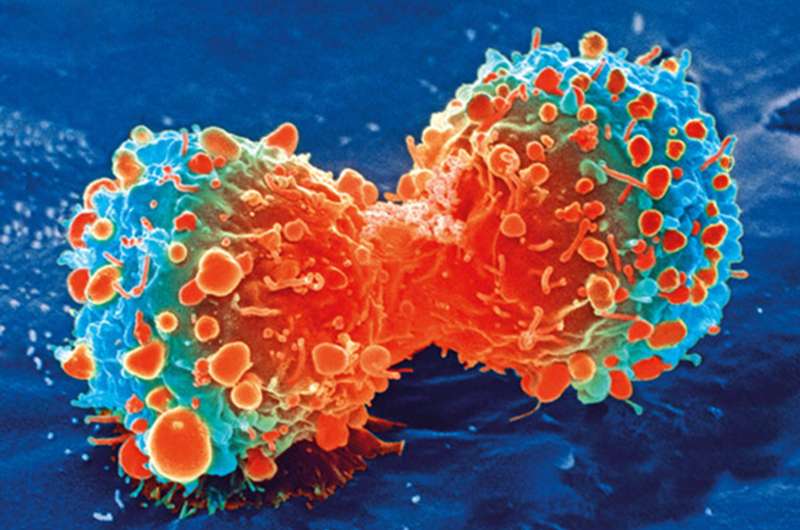New immunotherapy to beat cancer

Sophie Lucas (University of Louvain de Duve Institute) and her team have succeeded in neutralizing a molecule that blocks the immune system against cancer. The UCLouvain scientists discovered that this new immunotherapy increases the action of another well-known but not always effective immunotherapy, and that it makes tumor regression possible. This very promising discovery in the fight against cancer is published in the journal Nature Communications.
Cancer immunotherapy is the manipulation of the immune responses naturally present in the human body to fight cancer. Often, these immune responses are blocked by cells or molecules that prevent them from killing cancer cells, and the tumor is able to establish itself and grow.
In 2004, Sophie Lucas, researcher at the University of Louvain de Duve Institute, began studying the blocking of immune defenses in tumors in order to understand the functioning of cells that are said to be "immunosuppressive" (which block the body's immune responses). The goal was to identify and remove them, thus stimulating antibodies to act against the tumor. The identified culprits are regulatory T lymphocytes (Tregs): highly immunosuppressive cells in cancer patients. In 2009, Prof. Lucas discovered GARP, a molecule located on the surface of Tregs.
In 2018, Prof. Lucas finally managed to understand the role of GARP: the molecule acts as a messenger for Tregs, by sending signals that block immune responses. She is developing a tool (anti-GARP antibodies) to neutralize and prevent the messenger from sending its blocking signals. This important discovery was published in the journal Science.
In August 2020, Nature Communications published the results of the first tests carried out by Prof. Lucas and her team. The tests are promising: The scientists succeeded in neutralizing Tregs in cancerous mice using anti-GARP antibodies. If the messenger is neutralized, immune responses are not blocked and can again eliminate cancer cells. The tumor regresses quickly provided the anti-GARP antibodies are combined with another proven immunotherapy (anti-PD1 antibodies). Thus the UCLouvain team combines two complementary immunotherapy approaches, acting in different ways on the immune system, to increase the effectiveness of cancer treatment. And it works!
Conducting these same tests on humans could eventually provide a more effective therapeutic solution in the fight against cancer.
More information: Grégoire de Streel et al. Selective inhibition of TGF-β1 produced by GARP-expressing Tregs overcomes resistance to PD-1/PD-L1 blockade in cancer, Nature Communications (2020). DOI: 10.1038/s41467-020-17811-3



















